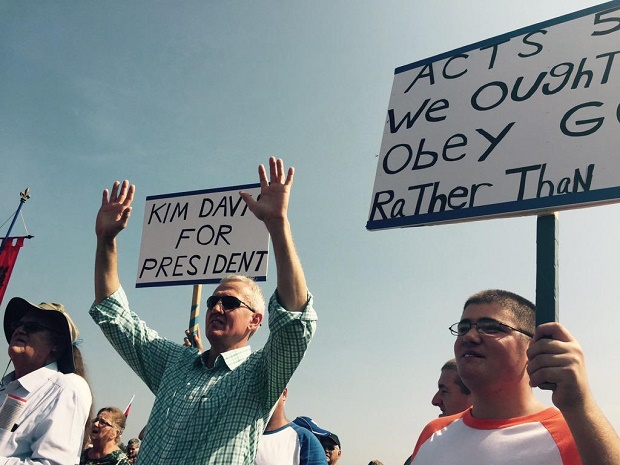
Supporters of Rowan County Clerk Kim Davis hold up signs in support of her, outside the Carter County Detention Center, Sept. 5, 2015, in Grayson, Kentucky. Davis said she met with Pope Francis briefly when he visited the US recently. AP
LOUISVILLE, Kentucky, United States — A Kentucky country clerk who went to jail for defying a federal court’s orders to issue same-sex marriage licenses says she met briefly with the pope during his historic visit to the United States.
Vatican officials did not respond to an email asking for comment early Wednesday.
Rowan County clerk Kim Davis and her husband met privately with Pope Francis last Thursday afternoon at the Vatican Embassy in Washington, D.C., for less than 15 minutes, said her lawyer, Mat Staver.
Davis, an Apostolic Christian, spent five days in jail earlier this month for defying a federal court order to issue marriage licenses to same-sex couples. In a telephone interview late Tuesday, Staver would not say who initiated the meeting with the pope or how it came to be, though he did say that Vatican officials had inquired about Davis’ situation while she was in jail. He declined to name them.
Davis was in Washington for the Values Voter Summit, a gathering of social conservatives where the Family Research Council, which opposes same-sex marriage, presented her with an award for defying the federal judge.
Pope Francis did not focus on the divisive debate over same-sex marriage during his visit last week. As he left the country, he told reporters who inquired that he did not know Davis’ case in detail, but he defended conscientious objection as a human right.
“It is a right. And if a person does not allow others to be a conscientious objector, he denies a right,” Francis said.